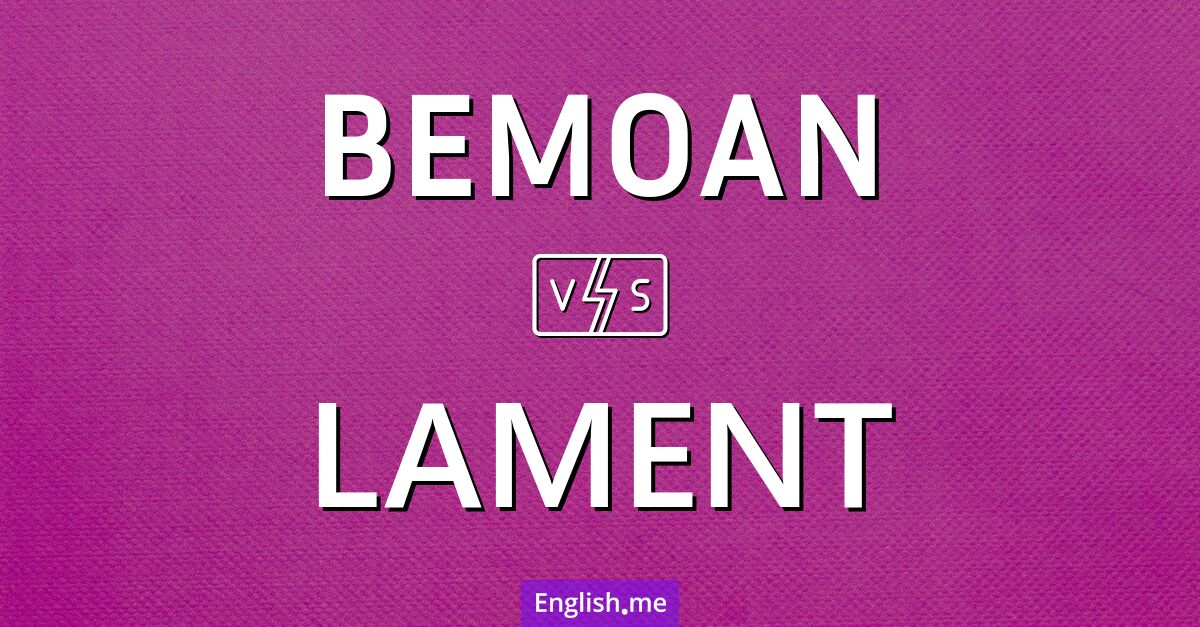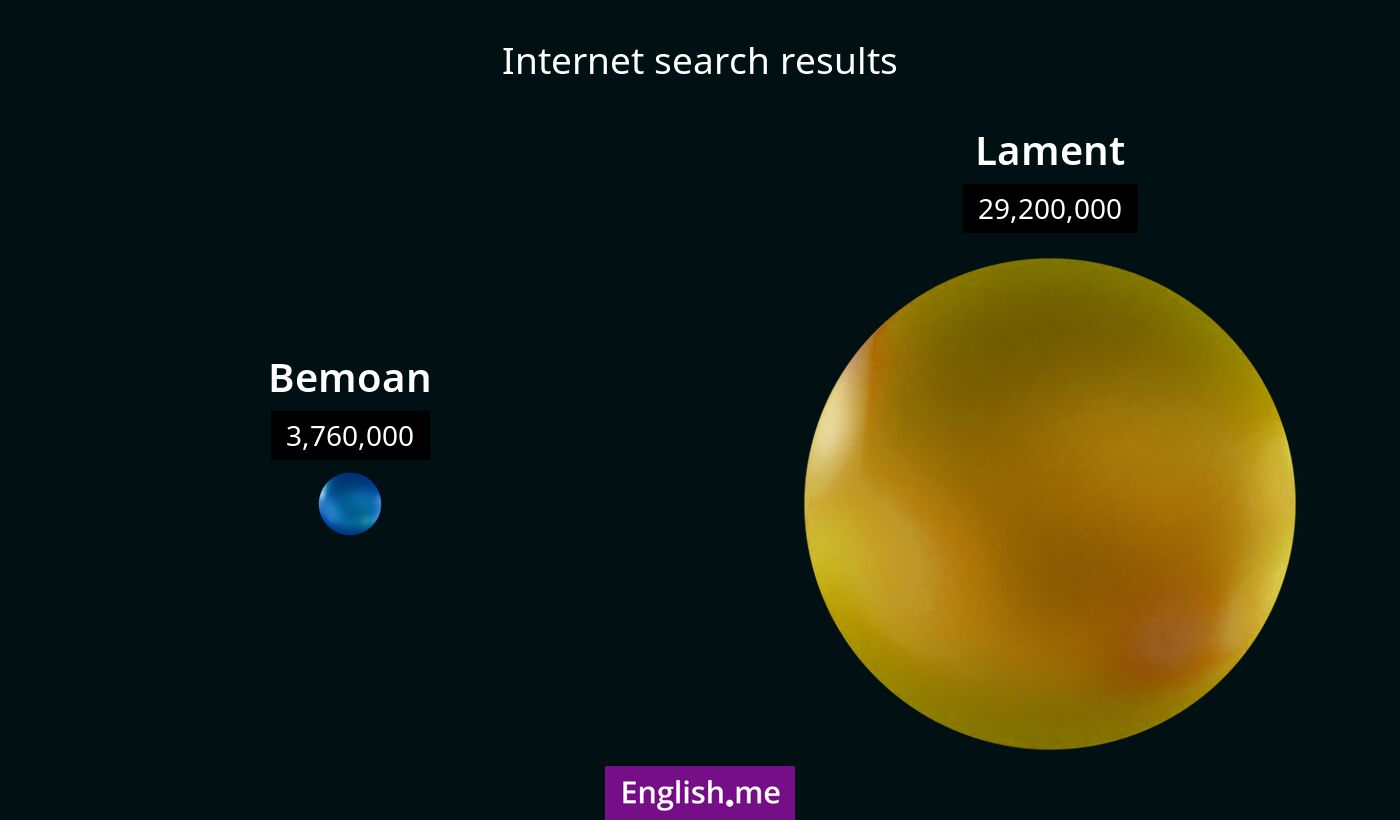"Bemoan" vs. "lament": echoes of sorrow
Reviewed and edited by  Lloyd Cooper 30/10/2024, 01:54
Lloyd Cooper 30/10/2024, 01:54
English.me team member

 What is similar?
What is similar?
Both "bemoan" and "lament" express sorrow, regret, or disappointment over something. They are often used interchangeably in contexts discussing grief or dissatisfaction.
 What is different?
What is different?
While both words express regret or sorrow, "bemoan" typically implies expressing displeasure or dissatisfaction vocally, often with a connotation of complaining. "Lament" is more formal and can imply a deeper, more profound expression of grief or sorrow, often used in literary contexts.
 Which one is more common?
Which one is more common?

 Examples of usage
Examples of usage
Bemoan- She always bemoans the lack of parking spaces.
- The citizens bemoaned the city's decision to increase taxes.
- He bemoaned the decline of traditional craftsmanship.
- Many people lament the loss of traditional languages.
- The nation lamented the passing of their beloved leader.
- He lamented that he could not find happiness in his work.

 English
English español
español française
française italiano
italiano deutsche
deutsche 日本語
日本語 polski
polski česky
česky svenska
svenska Türkçe
Türkçe Nederlands
Nederlands